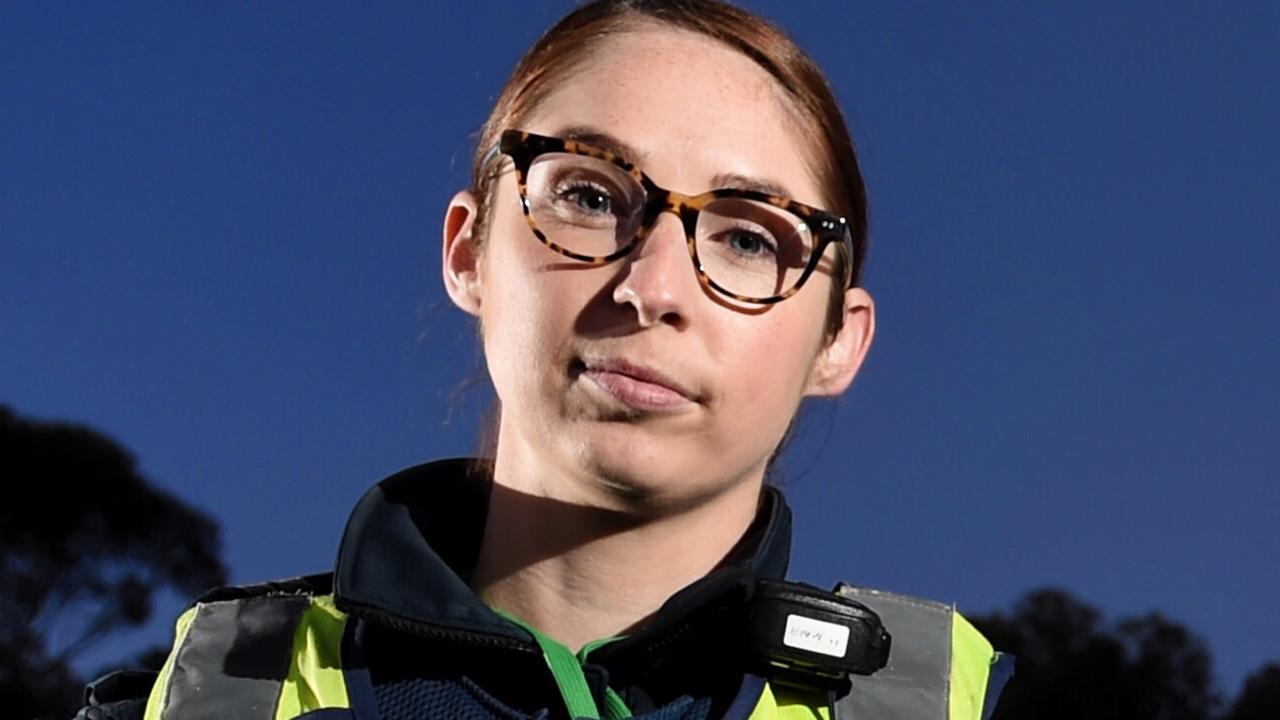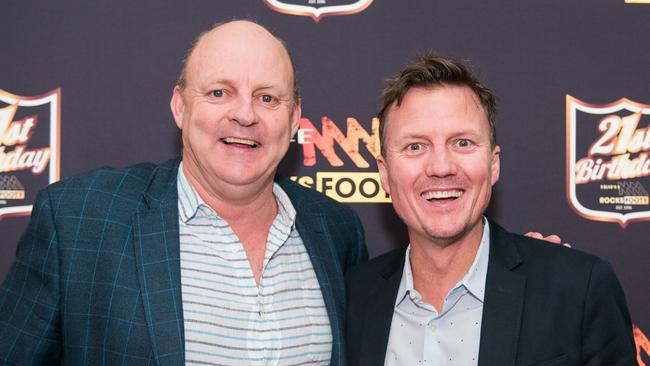Hamish McLachlan: What you didn’t know about chef George Calombaris
HE grew up in a working-class family in Melbourne’s southeast and became one of our best-known chefs — and George Colambaris has a lot on his plate, finds Hamish McLachlan.
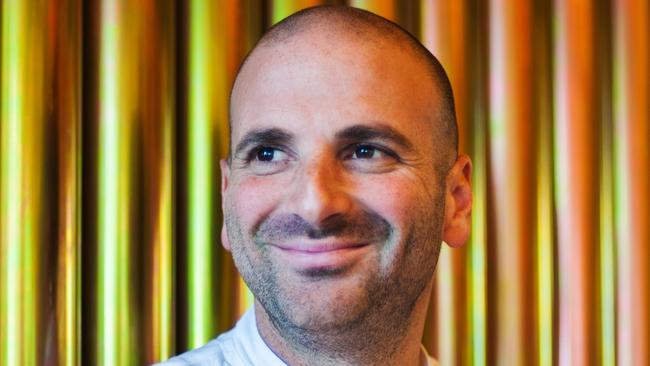
VIC News
Don't miss out on the headlines from VIC News. Followed categories will be added to My News.
I AM a terrible cook. I like the process, but I’m ordinary, at best. I am solid enough on the BBQ, and I get a pass mark with the kids’ pancakes, but that’s pretty much the end of it.
I’m the sous chef at home, and that’s a generous title.
George Calombaris can cook. Really well.
We spoke about his migrant parents, scratching off use-by dates at his parents’ shop, racism, the stress of owning a restaurant, Australia’s obsession with cooking shows, and his dad’s battle with cancer.
HM: You have your fingers in a lot of pies. Can you remember your first commercial venture?
GC: It would have been the tuckshop run at school. I had this little underground syndicate going on where I would collect tuckshop orders from all the kids, and then get someone to run, pay, collect and then distribute the orders. I was earning a little percentage off the top.
HM: Did you get the entrepreneurial gene from your mum or dad?
GC: Maybe a bit of both. I’m a southeastern suburbs boy, born and bred in Mulgrave. We were a working-class family. We didn’t struggle, there was always great food on the table. Mum and dad both had a real crack.
HM: Your parents, Mary and Jim, migrated to Australia?
GC: That’s right, dad migrated back in the ‘60s, and mum in the ‘70s. Mum came over because of the Turkish invasion of Cyprus. She left a fairly palatial upbringing in Cyprus to come to Australia with absolutely nothing — literally just a suitcase — with her three sisters and mother. My grandfather came over as well once he wrapped everything up. They lived in a rat-infested one-bedroom house in Collingwood, and between them all they couldn’t speak a word of English. They couldn’t afford to go to school when they got here, so mum became a seamstress.
HM: And your father?
GC: Dad was born in Egypt to Italian and Greek parents and came here pretty well educated; he could speak five languages. He was a mechanical engineer. They ended up with a few businesses, everything from a fish and chip shop in Noble Park to an independent supermarket that I can still remember quite vividly. I used to hate going there on a Saturday because I would have to scrape the specials stickers off of the windows. I couldn’t wait until 3 o’clock because that’s when the shop shut and we could have some fun. Dad would sit in the back office and smoke while counting up the cash, and I’d be running around the store squirting condensed milk down my throat while my brother would be nicking cigarettes! We had totally different interests as boys.
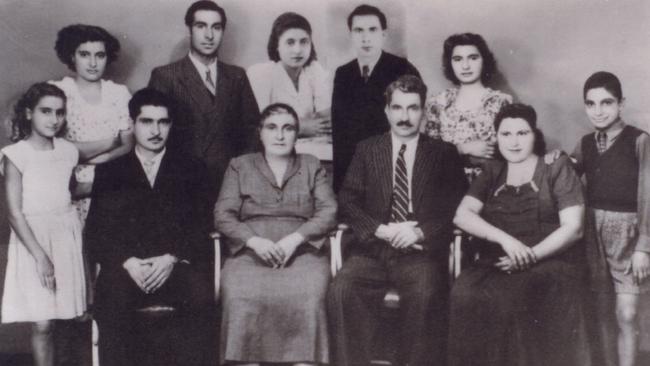
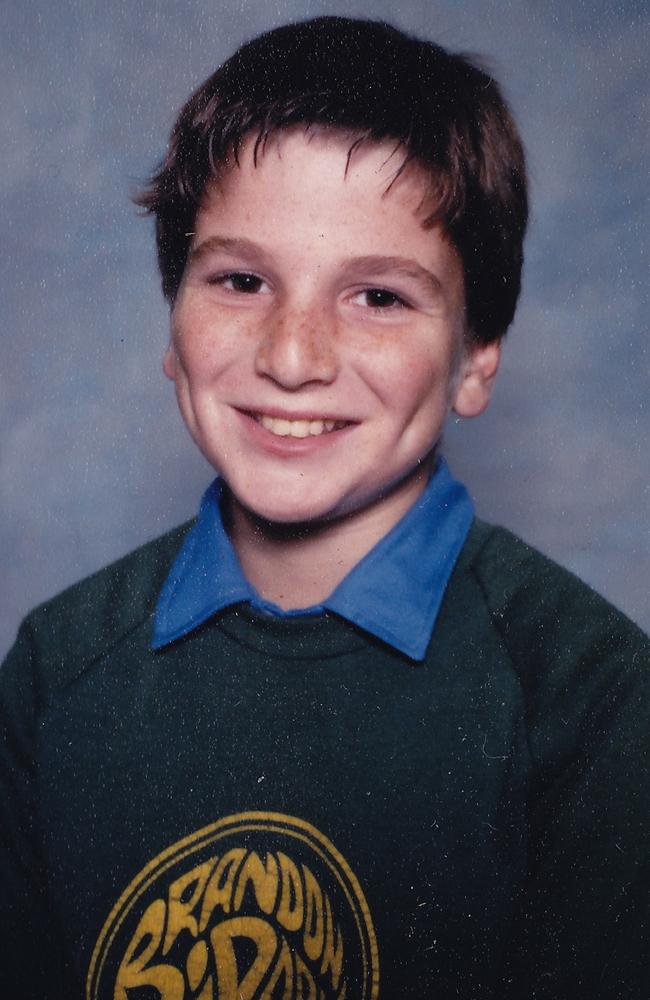
HM: There is a story that you used to go around with a bottle of Windex and scratch the use-by dates off of the old stock.
GC: That’s very true. Dad was hilarious, he used to say: “How can a tin of tomatoes possibly go off?” He is quite right when you think about it, unless they have been there for years upon years. So he would get me to scratch the use-by dates off a lot of product so nothing was wasted.
HM: Shrewd! Your father has always helped you with your businesses?
GC: He has. Just last Saturday I did lunch service at the Press Club and in the afternoon he came to the bar. We had a quiet drink before we went down to watch my beloved Melbourne Victory play. He’s always asking me about the business, he’s always concerned and he wants to make sure that everything is okay and that no one is stealing from me! I love that. He keeps saying that you can’t take your finger off the pulse in business, and I’ve learnt the hard way through a couple of our ventures. It’s not just your livelihood, it’s the livelihood of the people you employ, it’s the livelihood of the people that supply your business.
HM: It must have been a scare when you are still at school and your dad was diagnosed with bowel cancer.
GC: It was, and that was the second time, actually; the first time I was too young and don’t really remember. It was a tough time for me, but I don’t think I realised at the time how close I was to losing him. That only dawned on me recently. I can remember the day that dad went to go in for his surgery, and my grandmother came over in the morning to look after us while mum took dad into the hospital. As he was about to leave the house, I broke into tears, and looked at him and said, “Dad, please come back”. My dad never shows any emotion, I’m more like my mother in that respect, but I was bawling. He just looked at me and said, “George, what are you talking about? I will be back shortly”. He always gave us certainty. Life for him is very simple, he has great clarity. He sees that there are bumps in the road that you just have to get over and move on. I look at him now at 78 and he is still so resilient. I can be on the phone to him ranting about something that’s got me annoyed, and he is so calm and will try and reason with me and resolve the issue. That’s nice; it’s comforting, in fact. I’ve learnt from him that no matter how busy life is you have to take a moment and enjoy the little things. He is still with us, and still eating and drinking and smoking too much!
HM: Have you always been close?
GC: I think soccer was the thing that really connected us. I think you need a connector, and soccer is it for us. Growing up, we never saw dad, he was always working his arse off. Sundays were his only day off and he would walk me down to Middle Park and we’d watch South Melbourne play. It was wonderful, I knew for him it was a safety haven. Coming to Australia when he did, racism was rife — you could just imagine what he was getting called. I’ve experienced racism personally, my brother has as well, but the soccer was a place we could go where there were lots of Greeks and you could feel comfortable. Now, what is lovely is that I can take him to a Melbourne Victory game and give back what he gave to me. What I love about the league at the moment is that there is no one common denominator in terms of race, there are so many cultures there and they are there just to enjoy the game. It was frowned on back then as the “wog game”. It definitely hurt as a youngster.
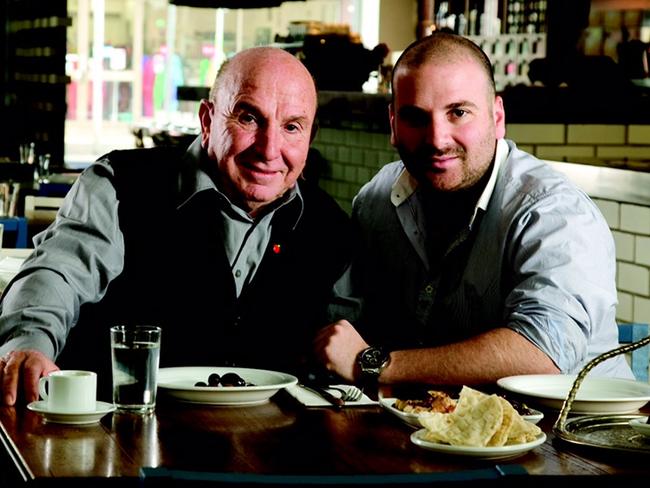
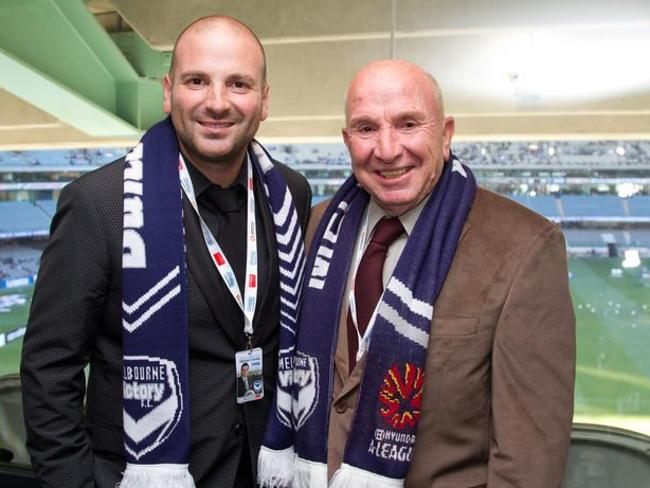
HM: Do you think there is less racism now than when you were growing up?
GC: I think there is less now, but I do think we are one of the more racist countries in the world. If I can do something to stop that, I will. Look at the Indian race for example, and the way that some people speak to them — they’re just migrants trying to do something in their life. That’s what’s wonderful about our country, there is so much diversity here. I still get people that come up and say, “You’re the Greek chef”. I have to point out that I might cook Greek food, but I am an Aussie. Sometimes if people get a bit too loud I’ll ask them if they’ve ever worn the Australian coat of arms on their chest and represented their country. I have, I won the right to represent Australia, and I did. It was one of the proudest days of my life when I stood there in France for the culinary Olympics. It was a moment I’ll never forget, it still gives me goosebumps when I think about it. The “Greek Chef” I’m called … shows how stereotypical we make people out to be. We shouldn’t be like that. Australia should be the leaders of zero tolerance towards racism.
HM: Who taught you how to cook? I was told that your mother and your grandmother were so good at it that you weren’t allowed in the kitchen.
GC: They were amazing cooks, the kitchen was very much their domain. I wasn’t allowed near the kitchen other than to tidy up! I fell in love with food through eating, and mum and gran taught me how much fun you could have from being able to give something to people. Food gives me that opportunity, you can see the delight and enjoyment people get from a great meal. There is an instant gratification that not many other jobs give. I’ve got a friend who is a barrister and he can go through many months on a case and then at the end of it lose. I couldn’t bear the thought of doing that.
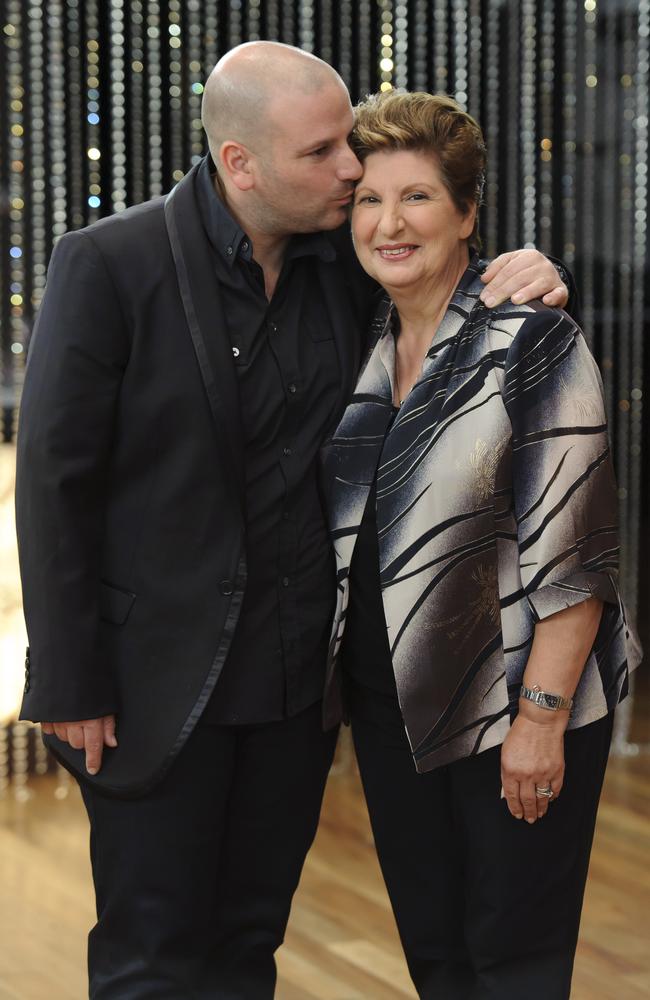
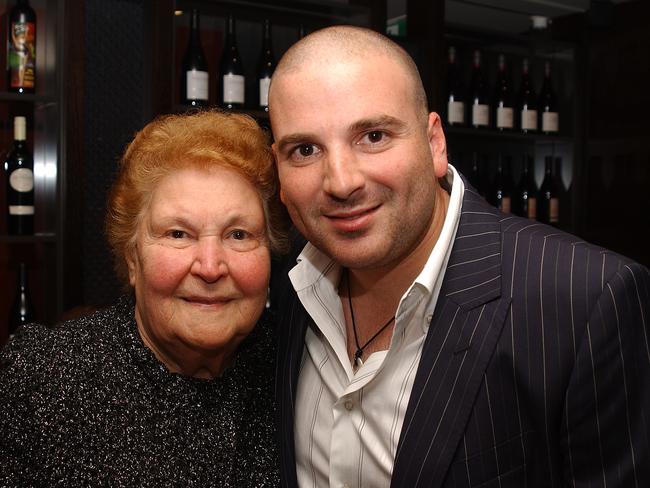
HM: When you prepare a wonderful meal and you can see the enjoyment on people’s faces, how do you feel?
GC: F---ing unreal! I never won ribbons at school, I wasn’t one of the top students, I just wasn’t good at any of it. I’ve been extremely fortunate to fall into something in life that I absolutely adore and am seemingly good at.
HM: I hear your mum still comes and tells your chefs how to cook.
GC: I love her to bits, but I do have to pull her up every now and then. She thinks she can tell everybody something. I think everyone knows she thinks she’s the boss, and to listen, and then just carry on.
HM: A few of us have mothers like that! Brad Cooper is in a new movie called Burnt. He plays an arrogant, demanding, narcissistic chef. Chefs can have a reputation of being pretty hard work in the kitchen.
GC: We can all get a little ahead of ourselves, can’t we? I got named Apprentice of the Year, Young Chef of the Year, Chef of the Year; they were all unreal and made me feel incredible. I was 24 when I won the Young Chef of the Year and I became this egotistical little wanker. I cooked what I wanted to cook and if you didn’t like it, I didn’t give a f---. That was quite obnoxious, and not what I’m about now. Yes, I am about my own style, and I will cook what I want to cook, but I have to listen to the people eating it — if you don’t, you are not going to last. It did take a big smack in the head for me to learn that!
HM: Is being a chef at the highest level stressful?
GC: Even to this day with the Press Club, I think the only day I really relax is on Sunday when it is closed. The Press Club for me has been my dream, it’s been up and running nearly 10 years now, and we’ve got our second hat and are chasing our third. It’s definitely stressful, it’s nail biting and it is scary, it’s all those emotions, but the flip side is that without those emotions we would not be where we are. You need the emotion to be able to inspire and direct.
HM: One restaurant would be demanding, but you have close to 10. There can’t possibly be times when you are not dealing with issues from one of them?
GC: You’re right. Switching off for me is a very hard thing to do, it’s daunting. Bizarrely, I do love the idea of being “on” it all the time, but it’s tiring. I’ve got three amazing business partners who are there beside me and always supporting my dreams. Travis, who is a partner at Hellenic Republic, also runs the place and is an absolute legend, and he’s been with me 14 years now. I walk in there with a sense of pride knowing that I’ve built something great, and he is there to help colour in the gaps and nail the detail and let me be creative and grow the business.
HM: How often are you cooking now?
GC: Three or four times a week. I haven’t been in there today but I am going into the Press Club tonight to eat. I think it’s important to do that; it’s the best way to judge where your food is at. If you’re not eating and experiencing the food and service, how do you really know how you are going? I’m always in and around the place. One of the best things I ever did was put my own development kitchen there, separate to the main kitchen. It’s my own space where all my chefs meet me, it’s my creative spot. It’s my escape from the rat race. It’s important to never forget creativity. Creativity is everything; if I forget that, I’m cheating my staff.
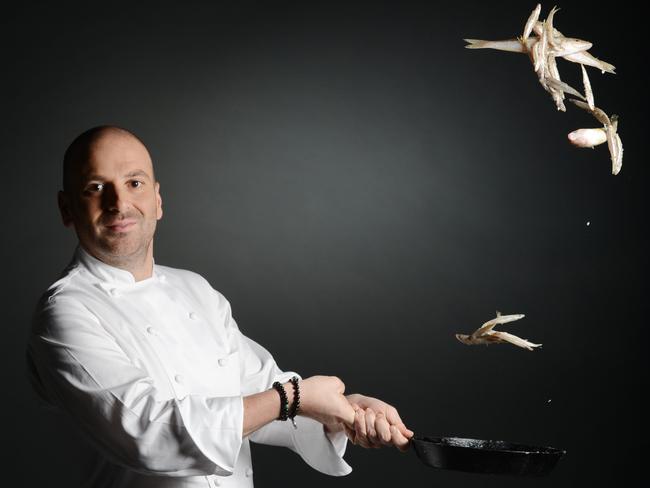
HM: Who cooks at home?
GC: Not me. I love giving tips to people that want to cook at home to make their life easier, but I just don’t like the idea of cooking at home myself.
HM: How did you get selected for MasterChef and did you think at the time it would change your life?
GC: I had no idea what it would do for me. I had no idea what I was doing when I went into the audition …
HM: Who approached you about doing that?
GC: I was approached by Jonathon Summerhayes who is now the executive producer of The X Factor. I remember walking into this audition and there must have been about 100 chefs; all the big boys were there, the big names. I was wondering what the hell I was doing there. I can remember one of them getting so worked up, so I decided I should just go in and do what I do, to talk about what I love, and that is food. People tell me that I’m quite good at public speaking. I’m not great, but I am best when I’m talking about food, because I love it. Anyway, I went in and did the audition. I got called back a couple of weeks later and one thing led to another, and I got the job.
HM: What is it that has made people fall in love with cooking shows?
GC: I think it’s just a common language that we all speak. I walk down the street now and there are burly bricklayers that stop me to show me pictures of macaroons they cooked with their daughters! It’s awesome. Everyone can relate to food.
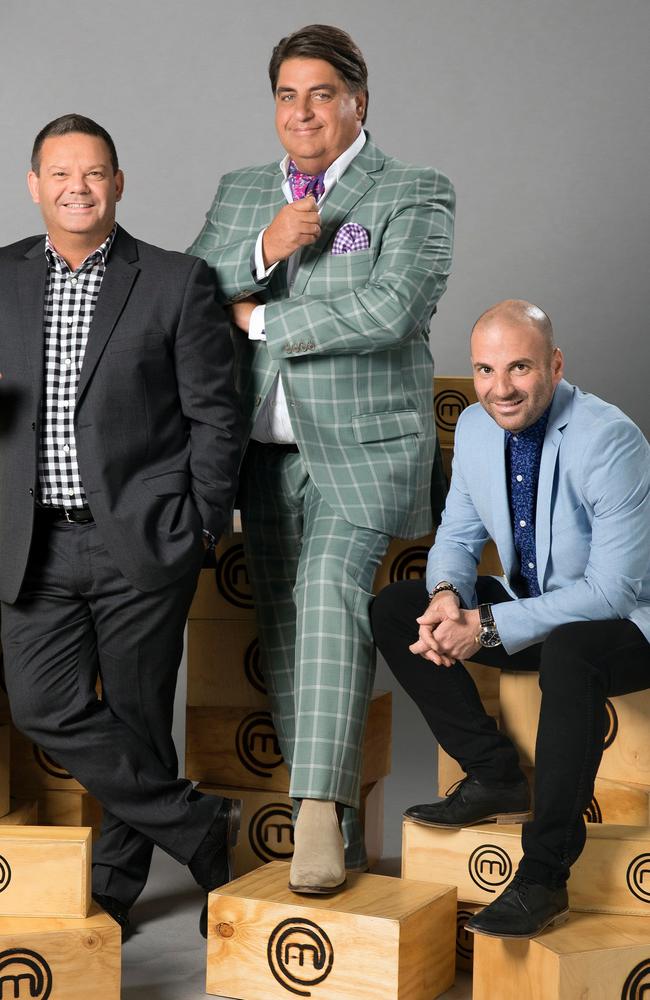
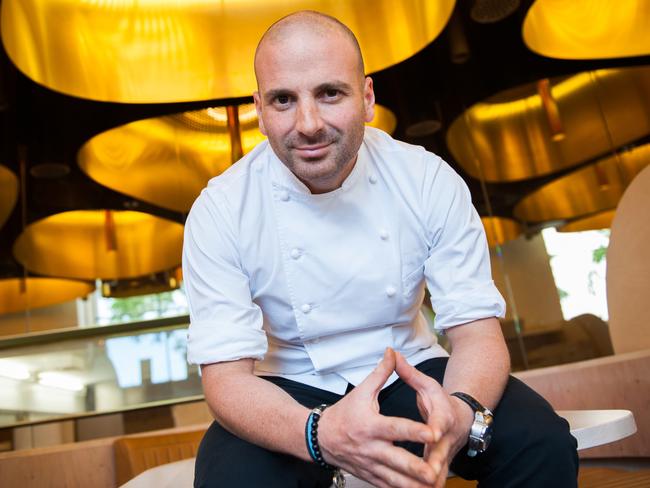
HM: What is your non-negotiable when it comes to food?
GC: Good question. From a business perspective, it is simple. You pay everyone before you pay yourself. And being honest with everything you do. Don’t get me wrong: I’m not perfect, there’s a few broken eggs out there from things we’ve done wrong and things that we could have dealt with better. And people are so important. I’m more concerned about the staff around me and the people that represent me than I was when I started. We are one team, but it is many dreams. Three hundred and fifty staff — it can be hard sometimes, but they are the business and the most important part of it.
HM: If you weren’t a chef you’d be a …
GC: Footballer.
HM: For Melbourne Victory?
GC: Manchester United.
HM: 10 years from now, if everything goes to plan, what will you be thinking?
GC: I hope I’d be looking back at the food I was cooking tonight and was thinking, “S---, I could have done better”.

